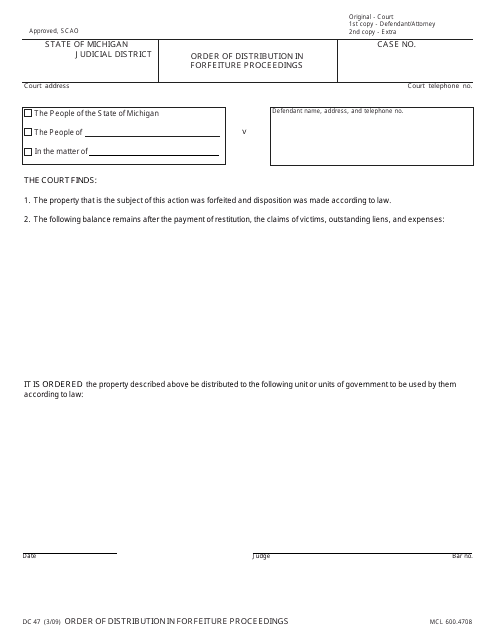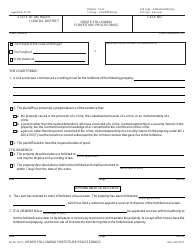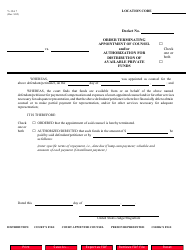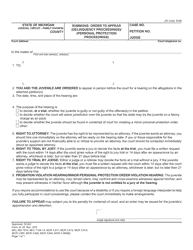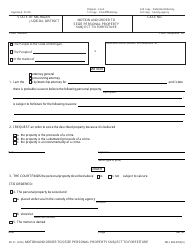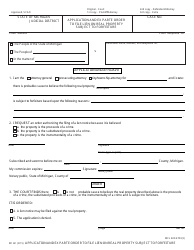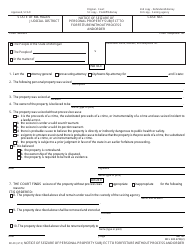Form DC47 Order of Distribution in Forfeiture Proceedings - Michigan
What Is Form DC47?
This is a legal form that was released by the Michigan District Court - a government authority operating within Michigan. As of today, no separate filing guidelines for the form are provided by the issuing department.
FAQ
Q: What is Form DC47?
A: Form DC47 is the Order of Distribution in Forfeiture Proceedings in Michigan.
Q: What does Form DC47 pertain to?
A: Form DC47 pertains to the distribution of assets seized in forfeiture proceedings.
Q: Who uses Form DC47?
A: Form DC47 is used by law enforcement agencies and prosecutors involved in forfeiture cases in Michigan.
Q: What is the purpose of Form DC47?
A: The purpose of Form DC47 is to determine the allocation of seized assets to various parties involved in the forfeiture proceedings.
Q: How is Form DC47 used?
A: Form DC47 is completed and filed by the prosecuting agency, and it outlines the proposed distribution of the seized assets.
Q: Can individuals or organizations submit Form DC47?
A: No, Form DC47 can only be submitted by law enforcement agencies and prosecutors.
Q: What happens after Form DC47 is submitted?
A: After Form DC47 is submitted, a judge reviews the proposed order of distribution and makes a final decision.
Q: Are there any guidelines for asset distribution in forfeiture proceedings?
A: Yes, Michigan law provides guidelines for asset distribution in forfeiture proceedings, which are considered when reviewing Form DC47.
Q: What factors are taken into account when determining asset distribution?
A: When determining asset distribution, factors such as the extent of each party's involvement in the offense, the value of the assets, and any outstanding liens or claims on the assets are taken into account.
Q: Is Form DC47 the final decision on asset distribution?
A: No, the final decision on asset distribution is made by a judge after reviewing Form DC47 and considering relevant factors and legal guidelines.
Form Details:
- Released on March 1, 2009;
- The latest edition provided by the Michigan District Court;
- Easy to use and ready to print;
- Quick to customize;
- Compatible with most PDF-viewing applications;
- Fill out the form in our online filing application.
Download a fillable version of Form DC47 by clicking the link below or browse more documents and templates provided by the Michigan District Court.
